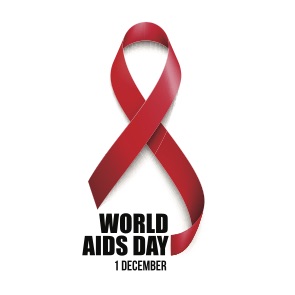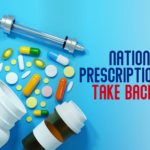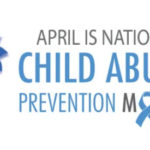World AIDS Day is observed every year on December 1st. This year’s theme, “Ending the HIV/AIDS Epidemic: Community by Community”, draws attention to the importance of encouraging efforts to diagnose, treat, prevent and respond to HIV.
Since the first known case of HIV in the United States in the early 1980s, there have been an extraordinary amount of scientific research advancements to help end the HIV epidemic. As a country, we have been able to develop strategies to improve care for people living with HIV, including successful supportive services, improved standards of care, HIV treatment regimens and services, as well as prevention tools to prevent people from acquiring the disease.
Thanks to advances in antiretroviral therapy (ART), the medicine used to treat HIV, individuals with HIV can live long, healthy lives and have effectively no risk of sexually transmitting HIV to a partner. In fact, the U.S. Centers for Disease Control and Prevention (CDC) has said that, “People who take ART daily as prescribed and achieve and maintain an undetectable viral load have effectively no risk of sexually transmitting the virus to an HIV negative partner.” This treatment as prevention concept is commonly referred to as “U=U” or “undetectable equals untransmittable”.
Public Health Director Daniel J. Stapleton states, “What was once considered a fatal disease is now effectively managed through the tireless efforts of those who have dedicated their lives to protecting others. We speak of public health heroes. Researchers continue to be heroes in the fight against HIV.”
HIV negative individuals also have an opportunity to give themselves the power to control their HIV status and remain negative. Pre-Exposure Prophylaxis (PrEP) is a once-a-day pill to prevent HIV infection for people who are HIV negative and at risk of becoming HIV positive through sexual activity or from injecting drugs. This daily regimen of two oral antiretroviral drugs in a single pill has proven to be up to 97% effective in preventing HIV infection.
Many people taking PrEP report little to no side effects. PrEP is an evidence-based HIV prevention tool, but it gives the most protection when combined with condoms and other prevention methods. PrEP does not protect against other sexually transmitted infection(s) (STI).
In addition, if you are HIV negative and you believe you have just been recently exposed to HIV, PEP (Post-Exposure Prophylaxis) is medication you can take that may prevent HIV infection. PEP works best if taken within 72 hours of exposure.
Individuals can obtain PrEP and PEP for HIV from a variety of providers, including the Niagara County Department of Health. If you are interested in learning more about PrEP or PEP, you may speak with one of the nurses at the Niagara County Department of Health at 716-278-1900. Appointments are held at the Sexual Health Center, located at the Trott Access Center, 1001-11th Street in Niagara Falls. We offer insurance navigation and access to assistance programs in order to work with you to find an affordable solution.
With these powerful advancements and tools, as well as continuous ongoing HIV research, New York State is leading the way to end the epidemic by 2020.












